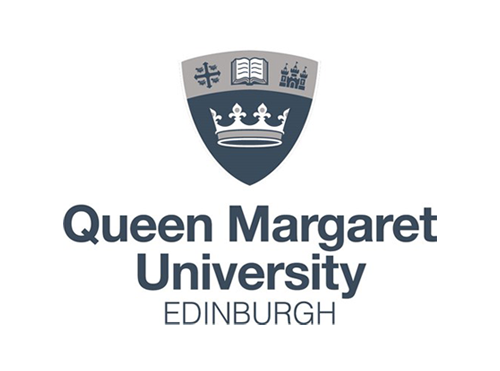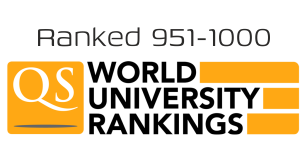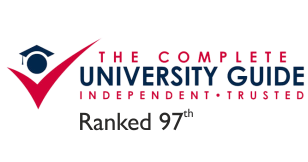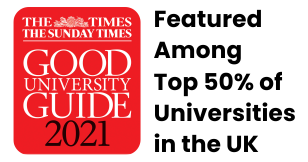MBA in
Business Analytics
The programme aims to ensure knowledge, skills, and innovation to develop and grow a new or existing business. Successful completion of the programme allows the students to appreciate their knowledge while engaging in practical skills by enhancing essential competencies as decision-making, teamwork, leadership skills, business potential, negotiation skills, communication, and presentation skills to develop unique business leaders.




Founded in the year 1875, Queen Margaret University has been driven by the aim to impart quality education to its students. Initially, it was established as the Edinburgh School of Cookery by its founders Christian Guthrie Wright and Louisa Stevenson. Over the years it has grown and expanded to encompass a broad range of subject areas in which it is widely recognised for its expertise. In the year 2007, it adopted the title Queen Margaret University, Edinburgh (QMU). QMU aims to facilitate an experience of learning that enables students to achieve their individual goals, make a positive contribute to society and help create a better world. By providing an optimal balance of practical and theoretical education, it prepares students for successful careers.




Programme Structure
| Modules | Assessment Pattern | Credits | |
|---|---|---|---|
| Leadership & Change Management | A1-Deabate(50%) | A2-Case study (40%) | 20 |
| Crisis Management | A1-Video Essay(60%) | A2- Group Presentation (50%) | 20 |
| Research Methodologies and Objectives | A1- Individual research proposal & reflection presentation (70%) | A2-Individual Viva(30%) | 20 |
| Modules | Assessment Pattern | Credits | |
|---|---|---|---|
| Applications & Machine Learning | A1-Group Presentation (40%) | A2-Report with Analytics (60%) | 15 |
| Ethics in AI & Decision Making | A1-Group Viva (65%) | A2-Case study-based report (35%) | 15 |
| Application of Analysis in Modern Business Environments | A1-Individual Viva (30%) | A2-Group report (70%) | 15 |
| Novel & Emerging Technology | A1-Video Essay(50%) | A2-Individual report on a business case (50%) | 15 |
| Modules | Assessment Pattern | Credits | |
|---|---|---|---|
| Dissertation (focused on Business Analytics) | A1 Dissertation (90%) | A2-Viva (10%) | 60 |
Programme Details
| Eligibility | Programme Duration | Mode of Study | Programme Cost |
|---|---|---|---|
| Undergraduate Degree or Equivalent Proficiency in English | 12 Months | In-person classes Pre-recorded videos Live online sessions. | £2,500 |
Undergraduate Degree or Equivalent
12 Months
£2,750
MBA Business Analytics
ISDC’s ACCA Professional
Qualification Pathway Programme
ISDC’s ACCA Professional Qualification Pathway Programme; SCQF (Scottish Credit and Qualifications Framework) validated Level 9 B.Sc in International Finance & Level 11 PG Diploma in International Finance and Level 11 MBA in International Finance of Queen Margaret University, are Accredited by the ACCA. The Scottish Credit and Qualifications Framework (SCQF) is one of the credit transfer systems for all levels of qualifications in the United Kingdom. SCQF Level 9 is benchmarked against the Final Year of the Undergraduate Degree & SCQF Level 11 is benchmarked against the Postgraduation in the UK and Internationally.
Programmes Offered

B.Sc. International Finance
- Eligibility : SCQF Level 8 or Equivalent (2nd Year Completion of UG Degree)
- Programme Duration: 9 Months
- Mode of Study: Blended Mode

PG Diploma in International Finance
- Eligibility : Undergraduate Degree or Equivalent
- Programme Duration: 8 Months
- Mode of Study: Blended Mode

MBA in International Finance
- Eligibility : Undergraduate Degree or Equivalent
- Programme Duration: 8 Months
- Mode of Study: Blended Mode
Career Opportunities
A professional qualification prepares individuals with the skills and knowledge required to pursue a variety of dynamic and challenging career paths across business sectors. From roles in consulting, finance to tech, marketing, and leadership across global industries, the career opportunities available for professionally qualified individuals are numerous.
- Data Analyst: Turn numbers into narratives. Help companies make smarter decisions using trends, patterns, and predictive models.
- Business Intelligence Analyst: Bridge the gap between business and tech. Design dashboards, generate reports, and guide strategy with real-time insights.
- Data Scientist (Business Focus): Go beyond the code. Combine analytical rigor with business acumen to drive high-impact solutions.
- Marketing Analyst: Measure what matters. Analyze campaign performance, customer behavior, and ROI to sharpen marketing strategies.
- Financial Analyst (Analytics): Forecast better. Use data models and statistical tools to provide deep financial insights and risk assessments.
- Supply Chain Analyst:Keep things moving. Optimize logistics, inventory, and procurement using data-driven forecasting.
- Product Manager (Data-Focused): Build what matters. Use customer data and market analytics to shape product development and growth.
- Operations Analyst: Streamline everything. Improve efficiency and reduce costs by analyzing internal workflows and performance metrics.
- Strategy Consultant (Analytics): Be the brain behind the business. Use analytics to solve complex problems and shape long-term strategy for clients.
- Customer Insights Manager: Decode customer behavior. Leverage data to enhance experience, increase loyalty, and boost satisfaction.


Frequently Asked Questions
The program aims to blend business knowledge with data-driven decision-making skills. It prepares students to analyze complex data, generate insights, and support strategic business decisions across various sectors.
Students will gain hands-on experience with tools such as Python, R, SQL, Tableau, Power BI, and Excel, along with exposure to machine learning, predictive analytics, and data visualization techniques.
Graduates can explore roles such as Business Analyst, Data Analyst, Analytics Consultant, Data Scientist, Operations Analyst, and Market Research Analyst in industries like finance, retail, healthcare, IT, and consulting.
No, a technical background is not mandatory. The program is structured to build analytical and technical skills from the ground up, making it suitable for students from various academic backgrounds.
